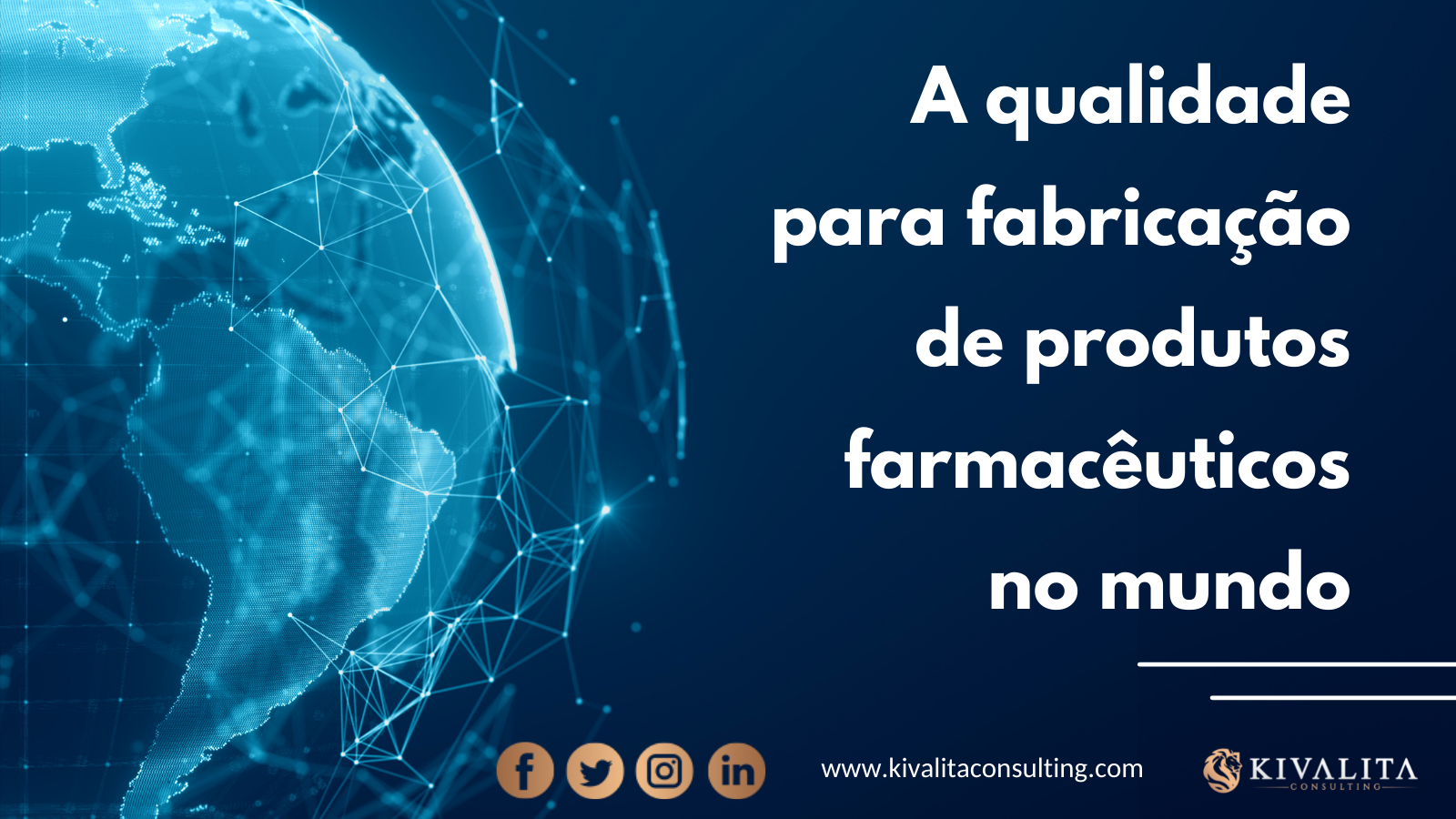By Bárbara Guelfi, Founder and CEO of Kivalita Consulting
Globally, product manufacturers – especially in the pharmaceutical, food, cosmetic and chemical industries, among others – must follow strict good production quality practices in order to minimize risks of contamination, be it microbiological, particles and others. They are carefully established and validated manufacturing methods and procedures, including various tests and quality documents during the manufacturing process and for the finished product.
For global drug manufacturers, there are specific regulatory agencies in countries that validate the quality of production processes as well as provide drug records. Especially when it comes to exporting products, it is necessary to be aware of what these regulatory agencies are, their technical requirements and international legislation.
Regulatory agencies in the United States, Europe and China
In the United States, The Food and Drug Administration, or simply called the FDA, has one of its responsibilities: to protect public health, ensuring the efficacy and safety of human and veterinary drugs, biological products and medical devices. The regulation ando controle de novos medicamentos nos Estados Unidos tem como base o New Drug Application (NDA). For each new drug, an Approved NDA is required prior to marketing in the United State.
The U.S. Food and Drug Administrationsupports the global trend of advanced manufacturing and has received significant funding from Congress for innovative manufacturing projects considering the adoption of new technologies to benefit patients. Thus, the FDA collaborates with international regulatory counterparts in developing requirements to assist manufacturers, who are exploring advanced manufacturing. Currently, the FDA is leading the International Conference on Q13 Harmonization Guideline on the continuous manufacture of substances and pharmaceuticals.
For drug manufacturers who need to introduce a new product to the European market, there is the European Medicines Agency (EMAwhich is responsible for scientific assessment, supervision and monitoring of drug safety in the European Union. Its purpose is to protect public and animal health in the Member States of the European Union, as well as in the countries of the European Economic Area, ensuring that all medicines available in these markets are safe, effective and of high quality.
In China, due to the reorganization of the Chinese government in 2018, theCFDA (China Food and Drug Administration)was renamed the NMPA (NationalMedical Product Administration). Among some of his duties are to regulate registration, supervise safety, research and formulate regulatory and support policies that encourage new technologies and new products for medicines, medical devices and cosmetics. The CFDA also performs quality management and develops Good Laboratory Practices (GPL), Good Clinical Practices (GCP), Good Manufacturing Practices (GMP), as well as good practices in the distribution and use of medical products, guiding their implementation.
International exchange and cooperation
It is critical that regulatory agencies promote international exchange and cooperation in the regulation of medicines, medical devices and cosmetics, jointly participating in the development of relevant international regulatory standards and standards, especially in times of covid-19 pandemic.
In this context, the ICH, International Council for Harmonisation of Technical Requirements for Pharmaceuticals for Human Use, plays a key role.He is the only one that brings together regulatory authorities and the pharmaceutical industry to discuss the scientific and technical aspects of pharmaceutical products, aiming at developing guidelines for them to be applied by regulatory authorities. ICH seeks greater global harmonization to ensure the manufacture and registration of safe, effective and high-quality drugs.
There is also the PIC/S (Pharmaceutical Inspection Co-operation Scheme), which is a non-binding informal cooperative agreement between regulatory authorities in the area of GoodManufacturing Practices (GMP) of medicines for human or veterinary use. The PIC/S is open to any authority that has a comparable GMP inspection system.
The collaboration of Anvisa – National Health Surveillance Agency – in this sense is essential mainly to expedite the release of vaccines to combat coronavirus. According to information from Anvisa, “the evaluation period is seven days when there is the clinical development of the vaccine in Brazil or when the report or technical opinion issued by the foreign healthauthority is able to prove that the vaccine meets the quality, efficacy and safety standards established by who or ich and pic/s. However, the deadline may be 30 days when the clinical development of the vaccine in Brazil is absent or when the report or technical opinion issued by the foreign health authority is unable to prove that the vaccine meets the quality, efficacy and safety standards established by who or ich and pic/s.”
Learn how Kivalita Consulting can help your company quality manufacturing processes
Knowing all national and international requirements for quality, when the mission is to introduce a new pharmaceutical product in the domestic market or even export it, is not always an easy task and requires time.
Kivalita Consulting is a Brazilian company specialized in the development of quality management and validation of technologies for companies in the area of Life Science, being able to meet the most stringent regulatory and market requirements. Our consultancy differs by competence in providing support to organizations of various sizes in the Life Science segment, working in the definition of processes to avoid rework, risks and losses. We have been in the market for more than five years, at a fast and continuous pace of growth in Brazil and abroad, with customers in Canada and India.
How about learning more about how we can help you with the quality challenges for manufacturing pharmaceuticals? Talk to our experts!
